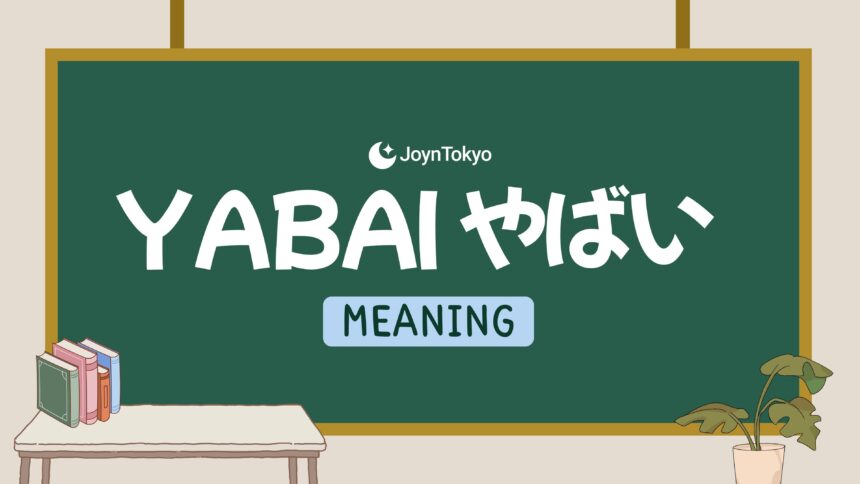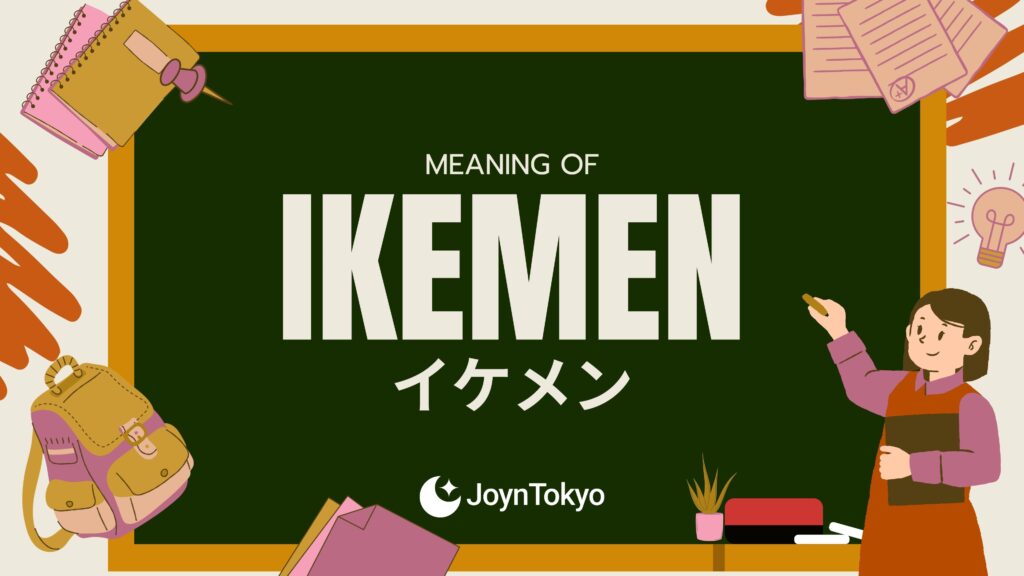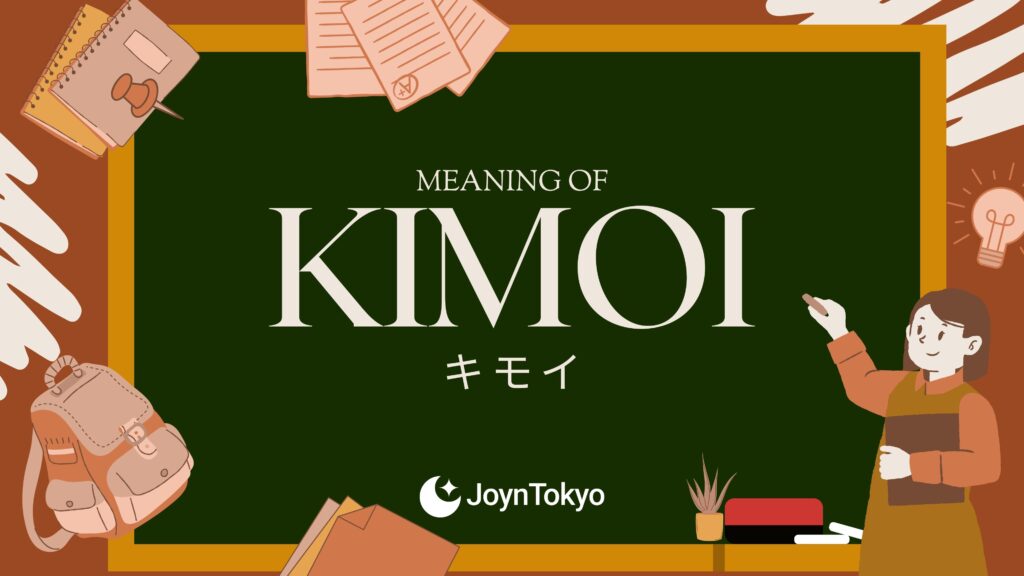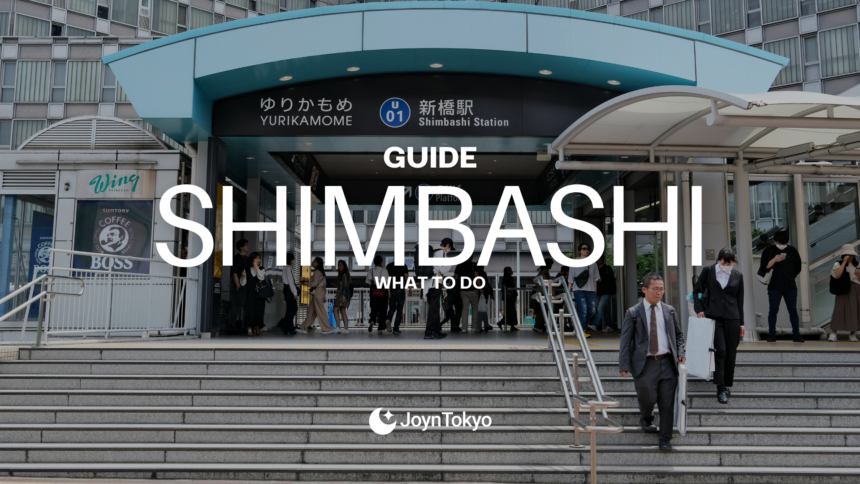The Japanese slang word “yabai” (やばい) is one of the most frequently used and versatile expressions in modern Japan. You’ll hear it in anime, in casual conversations among young people, and even in everyday life. But what does yabai actually mean? The answer isn’t simple, as it depends on context, tone, and who’s speaking. This guide explores the origins, meanings, and usage of yabai, with examples and tips to help foreigners use it naturally.
The Many Meanings of Yabai
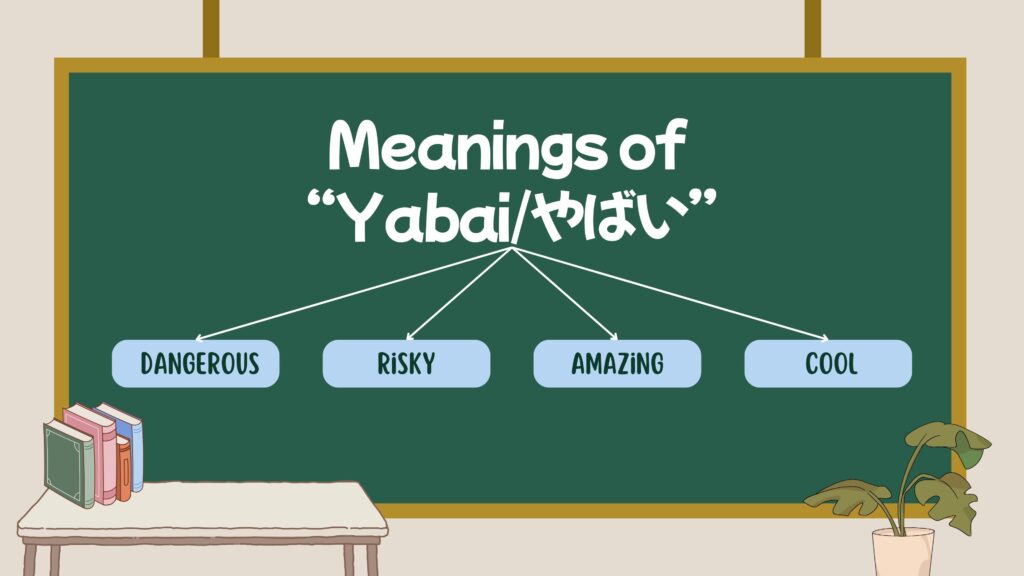
“Yabai” is fascinating because it can mean something terrible or amazing, depending entirely on how it’s said. Its flexibility reflects the creativity and emotional nuance of the Japanese language. Understanding these differences will help you use yabai naturally in everyday situations.
1. The Original Meaning: “Dangerous” or “Risky”
Originally, yabai meant “dangerous,” “risky,” or “bad news.” The word dates back to the Edo period (1603–1867), when it was used as street slang among criminals to warn others of potential threats. Over time, this meaning expanded to describe any serious or troublesome situation.
Romaji: Kore wa yabai!
Japanese: これはやばい!
Translation: This is bad!/This is dangerous!
You might hear this when something goes wrong, like missing a deadline, forgetting your wallet, or nearly slipping on an icy road. In this sense, yabai expresses tension, urgency, or alarm.
2. The Modern Meaning: “Amazing” or “Cool”
In modern Japanese, especially among young people, yabai has taken on a completely opposite meaning. It can now express excitement, admiration, or something overwhelmingly good, similar to literally negative words used as a positive in English slang, like “sick” or “bad.” This positive usage shows how language evolves with cultural trends.
Romaji: Kono sushi, yabai!
Japanese: この寿司、やばい!
Translation: This sushi is amazing!
Here, yabai is used with a cheerful or excited tone. The key is your expression and voice—say it with energy, and it means “awesome.” Say it with worry, and it means “bad.” That’s the beauty of this word’s flexibility.
3. Expressing Emotions or Surprise
Sometimes yabai simply reflects a strong emotional reaction, like shock, surprise, or even amusement, without being clearly positive or negative. It captures the feeling of the moment, much like “oh no,” “woah,” or “oh my god” in English.
Romaji: Yabai! Ame ga futte kita!
Japanese: やばい!雨が降ってきた!
Translation: Oh no! It started raining!
In this case, yabai works as an exclamation, expressing immediate emotion rather than judgment. It’s often used in unexpected or spontaneous situations where your reaction is the focus, not the event itself.
How to Use Yabai Naturally in Japanese
Because yabai is casual slang, it’s best used in informal settings. You’ll hear it among friends, classmates, or coworkers during casual chats. Using it in the right context can make your Japanese sound more natural and expressive, but using it in the wrong setting can come across as immature or impolite.
1. When It’s Appropriate (Casual Situations)

In daily conversations, yabai can express excitement, sympathy, or surprise. It adds emotion and immediacy to your speech, making it sound lively and real.
Romaji: Sono eiga yabai yo!
Translation: That movie was awesome!
Romaji: Ashita tesuto da! Yabai!
Translation: The test is tomorrow! I’m in trouble!
You can use yabai when reacting to a friend’s story, describing an experience, or expressing emotion. It’s especially common among young people who want to emphasize how extreme or unexpected something feels.
2. When to Avoid It (Formal Settings)
Although yabai is widely understood, it’s considered too casual for formal or professional situations. Avoid using it in business meetings, interviews, or when speaking to older people or authority figures. Instead, use more appropriate alternatives:
- Abunai (危ない): Dangerous
- Sugoi (すごい): Amazing
- Taihen (大変): Serious or difficult
These words convey similar meanings but with proper politeness. Using them shows cultural awareness and respect, which is highly valued in Japanese communication.
Read More
3. Variations and Tone Differences

The tone of voice dramatically changes the meaning of yabai. Saying it energetically might sound like admiration, while saying it softly or with a worried tone might imply danger or anxiety. Japanese listeners rely heavily on intonation to interpret your intention.
- “Yabai!” (excited tone): “That’s awesome!”
- “Yabai…” (worried tone): “This is bad…”
- “Maji yabai!” (emphatic): “Seriously amazing!” or “Seriously bad!”
The word “maji” (マジ) adds emphasis, similar to “really” or “seriously” in English. Together, phrases like Maji yabai! or Chou yabai! (super awesome) sound natural and are very common in youth speech.
Who Uses Yabai in Japan?
While yabai originated as male slang, it’s now completely gender-neutral and used across generations. Teenagers, young adults, and even TV personalities use it daily to express excitement, shock, or disbelief. You’ll often hear it in schools, on YouTube, and in trendy areas like Shibuya or Harajuku.
However, older generations may still associate yabai with its original “dangerous” meaning. When speaking with elderly people or in polite settings, it’s safer to use more traditional expressions like sugoi or taihen. Understanding when to switch between casual and formal speech is key to sounding fluent in Japanese culture.
Tips for Sounding Natural with Yabai
To master yabai, think of it as a tool for emotional expression rather than just a word. How you say it matters just as much as when you say it.
- Tone is everything. Your facial expression and intonation decide whether it sounds positive or negative.
- Don’t overuse it. Using yabai too often can make your Japanese sound repetitive or childish.
- Mix it with other slang. Phrases like Maji yabai! or Chou yabai! are natural and emphasize intensity.
- Learn from context. Observe how Japanese friends, influencers, or TV characters use it—context is the best teacher.
Wrapping Up: The Power of Yabai in Japanese Culture
Yabai is more than just a slang term, it’s a reflection of how Japanese people express emotion through nuance and tone. It can mean “bad,” “cool,” “scary,” or “unbelievable,” depending on the context. This single word captures a range of emotions, making it one of the most dynamic expressions in Japanese.
For foreigners living in Japan, learning to use yabai naturally will make your conversations more fluent and expressive. By understanding its history, tone, and social context, you’ll not only sound more like a native speaker, but you’ll also gain insight into the rhythm and emotion of everyday Japanese life.

